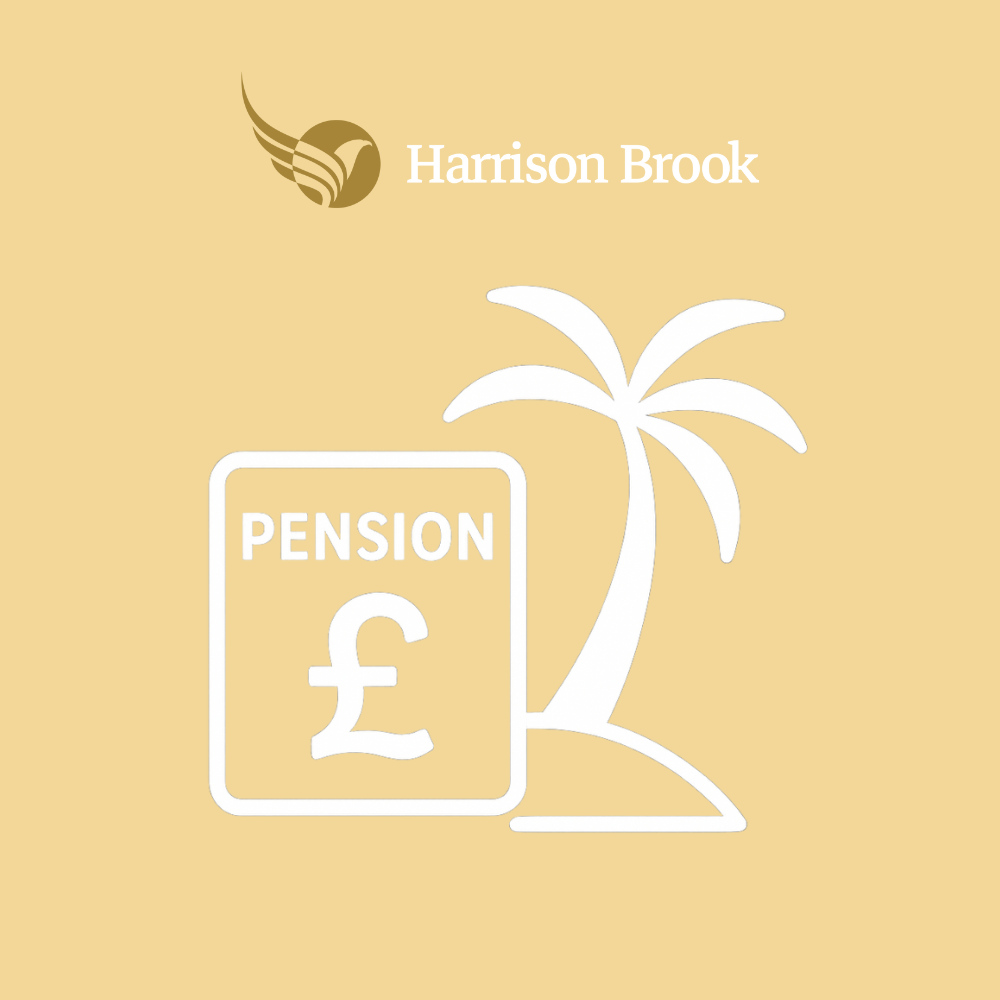
For many British expats, Thailand has long been a retirement haven. Warm weather, affordable living costs and a vibrant lifestyle draw thousands every year. Yet when it comes to managing UK pensions in Thailand, questions about taxation, remittance rules and double taxation treaties often cause confusion. Understanding how your pension income is treated both in the UK and Thailand is crucial to making informed financial decisions and avoiding unpleasant surprises.
Introduction to UK Pensions and Tax Residency
When planning your retirement in Thailand, understanding how your UK pension income is taxed is essential for effective financial management. As a Thai tax resident, you are subject to Thai tax laws, which means your pension income from the UK can be considered assessable income in Thailand. The Double Taxation Agreement (DTA) between the UK and Thailand is designed to prevent double taxation and provide tax relief for individuals who have income in both countries. This agreement helps ensure that you do not pay tax twice on the same pension income, but it is crucial to apply the DTA correctly to benefit from its provisions.
Thai tax residents must be aware of their tax obligations, as pension income remitted to Thailand may be subject to Thai tax. However, tax credits and allowances are available to help reduce the overall tax burden. Navigating these rules can be complex, especially when considering the interaction between UK and Thai tax laws. Seeking professional tax advice is highly recommended to ensure you comply with all relevant regulations, claim any available tax relief, and manage your assessable income efficiently. By understanding your tax residency status and the implications of the double taxation agreement, you can better plan your finances and avoid unexpected tax liabilities on your UK pensions and other income in Thailand.
Foreign Income and Assessable Income
For Thai tax residents, foreign income, including UK pensions, can become assessable income if it is remitted to Thailand. Under Thai tax laws, individuals who qualify as tax residents are required to report their worldwide income, which means any foreign sourced income brought into Thailand must be included on your Thai tax return. The Thai Revenue Department considers such income taxable if it is remitted to Thailand, and you may need to pay tax on these funds as part of your overall tax liability.
Double Taxation Agreements (DTAs), such as the one between the UK and Thailand, play a crucial role in providing tax relief and preventing double taxation on foreign income. These agreements allow you to claim tax credits for taxes paid in the UK on your UK pension income, which can help reduce your Thai tax liability. Understanding how to claim these tax credits and apply the relevant provisions of the DTA is essential for minimizing your tax burden and ensuring compliance with Thai tax regulations.
Given the complexities of foreign income taxation and the strict reporting requirements, it is important to stay informed about your tax obligations as a Thai tax resident. By seeking professional tax advice, you can ensure that you are correctly reporting your assessable income, claiming all available tax credits, and taking full advantage of the tax relief provided by double taxation agreements. This proactive approach will help you manage your taxes efficiently and avoid any issues with the Thai Revenue Department regarding your UK pensions and other overseas income.
Will Thailand tax my UK pension?
One of the most common concerns for British retirees is whether their UK pension will be taxed once received in Thailand. The answer depends on several factors, including how the pension is paid, whether the funds are remitted into Thailand and the existence of tax treaties. UK pension remittances may be subject to Thai taxes depending on the timing and method of transfer. In the broader context of tax in Thailand for foreign pensioners, understanding these rules is crucial for compliance.
Currently, Thailand taxes foreign income only when it is remitted into Thailand in the same tax year that it is earned. Remitted funds are considered taxable income under Thai rules if they are brought into Thailand within the same tax year as earned. If you receive your UK pension into a UK bank account and delay transferring it into Thailand until a later year, under current interpretation it may not be subject to Thai tax. However, this area is complex and subject to change, so professional guidance is essential. It is important to understand current tax law and how it impacts pension remittances to ensure compliance with Thai tax regulations.
Does Thailand tax foreign pension income?
Yes, foreign pensions can be taxed if remitted to Thailand in the same tax year. For example, if your UK pension is paid into your Thai bank account each month, it will likely fall within Thai taxable income. Foreign source income, such as UK pensions, is subject to personal income tax in Thailand unless it qualifies as tax exempt under local regulations. However, if you structure withdrawals and transfers carefully, some expatriates legally minimise their exposure to Thai taxation. How much tax may be owed depends on the amount remitted and the timing, and in some cases, pension income could be tax free if it falls below the tax-free threshold or meets exemption criteria.
It is important to note that UK pensions are generally taxable in the UK before they are sent abroad, but you may be tax exempt in Thailand depending on the amount and timing of your remittance. Therefore, understanding how the UK–Thailand Double Taxation Agreement (DTA) applies is key to avoiding double taxation.
Does the UK have a double tax treaty with Thailand?
Yes, the UK and Thailand signed a double taxation treaty to prevent individuals from paying tax twice on the same income. The treaty outlines where certain types of income should be taxed, and in many cases gives taxing rights to the country of residence. Tax credits may be available to offset tax paid in the UK, and claiming tax credits is an important step for expatriates to reduce their Thai tax liability. However, pensions are treated differently depending on whether they are government pensions, state pensions or private pensions.
For example, UK government service pensions are typically taxable only in the UK. Other pensions may be taxable in Thailand if remitted there. Private pension income may also be subject to Thai tax, and the amount of tax paid in the UK can affect your Thai tax liability. Each case depends on personal circumstances, the type of pension and how funds are transferred.
How do Thai remittance tax rules work?
Thailand’s tax system is based on residency. Anyone living in Thailand for more than 180 days in a calendar year is considered a tax resident. Thai tax residents are liable for income tax on both Thai-sourced income and foreign-sourced income remitted into Thailand in the same year it is earned.
Key points include:
- Remittance timing: If pension income is transferred into Thailand the following year, it may not be subject to Thai tax.
- Direct payments: Pensions paid directly into Thailand during the year they arise will generally be taxed.
- Exchange rates and thresholds: Taxable amounts are calculated in Thai baht, which can impact the effective tax burden.
Under the Thai Revenue Code and tax code, tax residents have specific filing obligations. There is a need to file a tax return if you remit foreign income, such as pension payments, into Thailand and your total income exceeds the relevant thresholds. Tax filing is mandatory for those meeting these criteria, and you must file tax returns to comply with Thai income tax regulations. Remitted pension income may be subject to Thai income tax, and failure to meet filing obligations can result in penalties. It is important to understand your responsibilities under the revenue code to ensure proper compliance.
Do you pay tax on UK pensions if you live overseas?
Yes, UK pensions remain subject to UK taxation unless specific exemptions apply. Even if you move abroad, HMRC typically deducts tax at source under the PAYE system. Even if you have paid tax in the UK, you may still have Thai tax obligations, and documentation of paid taxes is important for claiming relief and avoiding double taxation. You may apply for relief under the DTA if Thailand has the taxing rights on your pension. This requires submitting the relevant HMRC forms and, in some cases, coordinating with Thai tax authorities. It is advisable to consult a tax professional to ensure compliance with both UK and Thai tax rules.
Practical considerations for retirees in Thailand
Transferring funds
Many retirees transfer lump sums or monthly payments from the UK to Thailand. Foreign income brought into Thailand may have tax implications, as bringing such income into the country can trigger Thai tax compliance requirements. Planning these transfers in light of Thai remittance rules can reduce overall tax exposure.
Exchange rate fluctuations
The value of your UK pension in Thailand depends on sterling to baht conversion rates. Sudden changes can affect your monthly budget, making financial planning even more important.
Healthcare and living costs
Although the cost of living is lower in Thailand, retirees should factor in private healthcare, travel back to the UK and potential changes in lifestyle needs.
Estate and succession planning
UK inheritance tax rules still apply to many expatriates, even if they live abroad permanently. Coordinating your UK pension, Thai tax obligations and estate planning ensures your wealth is managed smoothly for future generations. When planning your estate, it is important to consider the tax treatment of capital gains, capital gain from asset sales, and rental income in Thailand, as these can affect both remittance strategies and inheritance outcomes.
FAQs – UK pensions and Thai remittance tax rules
Do I have to declare my UK pension in Thailand?
Yes, if you are tax resident and remit your pension income into Thailand in the same year, you must declare it. Pension income earned and other income earned abroad may be subject to Thai tax depending on tax residency rules, which determine your tax obligations on foreign source income.
What is the Thai treatment of lump sum pension withdrawals?
Lump sums transferred in the same year are generally taxable. Transferring in a later year may avoid Thai tax, but this must be planned carefully.
Can UK state pensions be paid to Thailand?
Yes, the UK State Pension can be paid directly into a Thai bank account. It may be taxable in Thailand if remitted in the same year.
What happens if I do not pay Thai tax on pension income?
Failure to declare taxable income in Thailand can result in penalties and interest charges. Compliance is crucial.
Is it possible to avoid paying UK tax on pensions if living in Thailand?
In some cases, if Thailand has the taxing rights under the DTA, you can apply to HMRC for your pension to be paid gross. This must be approved formally.
Key takeaways
- UK pensions are generally taxable in the UK, but Thailand may also impose tax if the income is remitted there in the same tax year.
- The UK–Thailand Double Taxation Agreement helps prevent double taxation but must be applied correctly.
- Timing of remittances is central to managing your Thai tax exposure.
- Professional financial advice is highly recommended to navigate these rules and plan efficiently.
Speak to an adviser
If you are considering retiring in Thailand or already receiving a UK pension abroad, careful planning is vital. At Harrison Brook, we specialise in helping British expatriates structure their pensions, investments and tax affairs internationally.
Contact us today for a free, no-obligation consultation and take control of your retirement income.



